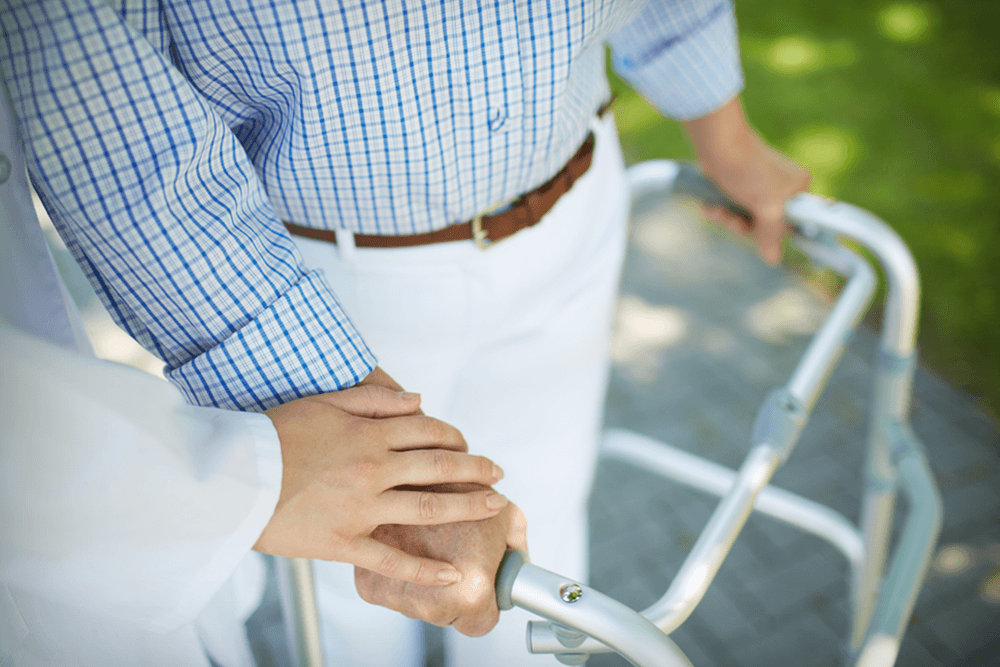A fear of falling becomes more common as we age, even amongst those who have never had a bad fall. In fact, many senior adults have a debilitating fear of falling. This can lead them to avoid activities such as walking, shopping, or taking part in social activities. Read on to learn more about this common phobia and how your healthcare provider can supplement support so you or your loved ones can live happier.
Fall Risk Increases With Age
Many people have a friend or a relative who has fallen, slipped, or felt dizzy when standing. If you or a loved one has a fear of falling, you’re not alone. More than 1 in 3 people ages 65 years and older fall each year.
More than 1.6 million senior adults go to the emergency room for fall-related injuries each year. Among these senior adults, falls are the number one cause of fractures, hospital admissions for trauma, and loss of independence from fall-related injuries. The most common fall-related injuries include fractures such as hip, pelvis, spine, arm, hand, or ankle fractures. Hips fractures, however, are one of the most serious types of fall injury as they are the leading cause of loss of independence among senior adults.
It’s easy to see how the risk of falling and fall-related problems, rises with age and how equally the fear of falling rises with age as well.
Your Doctor Can Help
If you do have a fall, it’s important to share the details of the incident with your family’s doctor, even if you’re not hurt. Many underlying causes of falls can be treated or corrected to prevent future accidents. For example, falling can be a sign of a new medical problem that needs attention, such as diabetes and changes in blood pressure. They can also be a sign of problems with medication or eyesight that can be corrected. If this is the case, your doctor can help by prescribing medications or eyewear to help. Physical therapy may also be recommended, a walking aid, or other steps to help prevent future falls. Small measures such as these can make you or your loved one feel more confident in their abilities so that they are able to live their life without fear.
Preventing Falls and Overcoming Fear
Exercise is always a great way to improve your balance. It will strengthen your muscles to prevent falls and make you feel more confident. Skip the bifocal or multifocal glasses when you walk, especially when taking the stairs. You can also take steps to make your home fall-proof. For example, remove loose rugs, add handrails to stairs and hallways, and make sure you have adequate lighting in dark areas.
Overall, it’s important to remember, falls are an inevitable part of life, even as we age. But there is no need to stop doing activities out of fear. Speak with you primary care doctor to help guide you towards changes to your routine that can help prevent falls and boost your confidence.

 Call Lakeland
Call Lakeland
